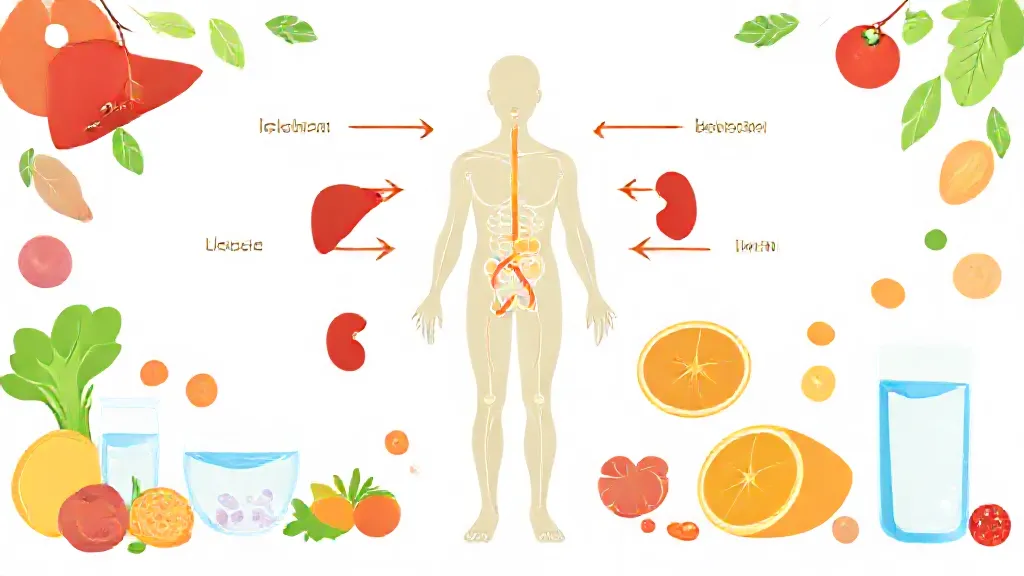The human body is equipped with a remarkable system for detoxification that operates continuously, ensuring that harmful substances are processed and eliminated effectively. This natural detoxification process involves various organs, enzymes, and biochemical pathways that work in harmony to maintain health and homeostasis. Understanding how the body detoxifies naturally can empower individuals to support these processes through lifestyle choices and dietary habits.
The Role of the Liver in Detoxification
One of the primary organs involved in detoxification is the liver. It serves as the body's chemical processing plant, breaking down toxins and converting them into less harmful substances. The liver uses a two-phase process known as biotransformation.
In Phase I, enzymes modify toxins, often making them more reactive, while in Phase II, the liver conjugates these reactive intermediates with other substances to render them water-soluble, allowing for excretion via urine or bile. Supporting liver health through hydration, a balanced diet, and limiting alcohol intake is crucial for optimal detoxification.
The Kidneys: Nature's Filtration System
The kidneys play a vital role in detoxifying the body by filtering blood and producing urine, which contains waste products and excess substances.
They regulate electrolyte balance, blood pressure, and fluid levels while excreting urea, creatinine, and other metabolic waste. Maintaining proper hydration is essential for kidney function, as it aids in the dilution and elimination of toxins. Consuming foods rich in antioxidants, such as berries and leafy greens, can also support kidney health and enhance detoxification.
The Skin as a Detox Organ
The skin is often overlooked in discussions about detoxification, but it is a significant organ for eliminating toxins. Through processes like sweating, the skin can excrete heavy metals, alcohol, and other waste products. Regular physical activity promotes sweating, while practices like saunas and steam baths can enhance this natural detoxification process.
Additionally, a healthy diet rich in vitamins and minerals supports skin health and its detoxifying capabilities.
The Role of the Lymphatic System
The lymphatic system is another critical component of the body's detoxification network. It transports lymph, a fluid containing white blood cells, throughout the body, helping to remove waste products and toxins.
The lymphatic system relies on physical movement to function effectively, as it lacks a central pump like the heart. Engaging in regular exercise, deep breathing, and practices like yoga can stimulate lymphatic flow and enhance detoxification.
Gut Health and Detoxification
The gut plays a crucial role in detoxification as well, particularly through its microbiome.
A healthy gut microbiome aids in breaking down toxins and preventing their absorption into the bloodstream. Foods rich in fiber, such as fruits, vegetables, and whole grains, promote healthy digestion and regular bowel movements, which are essential for eliminating waste. Probiotics and fermented foods can also support gut health, enhancing the body’s natural detoxification processes.
Antioxidants: The Body's Defense Against Toxins
Antioxidants are compounds that help neutralize free radicals, which can cause oxidative stress and cellular damage. The body produces some antioxidants, but dietary sources are essential for bolstering these defenses. Foods high in vitamins C and E, selenium, and flavonoids can enhance the body's ability to detoxify.
Incorporating a variety of colorful fruits and vegetables into the diet ensures a rich supply of these protective compounds.
The Importance of Hydration
Water is a fundamental element in the detoxification process. It aids in the transport of nutrients and the elimination of waste products through urine and sweat.
Dehydration can hinder the kidneys' ability to filter toxins effectively, leading to a buildup of harmful substances in the body. Drinking adequate water daily, along with herbal teas and hydrating foods, supports the body's natural detoxification processes.
Supporting Natural Detoxification Through Lifestyle Choices
To optimize the body's natural detoxification capabilities, individuals can adopt several lifestyle choices.
Prioritizing a balanced diet rich in whole foods, staying hydrated, exercising regularly, and managing stress are key strategies. Reducing exposure to environmental toxins, such as pollutants and chemicals, can also enhance the body’s ability to detoxify. By understanding and supporting these natural processes, individuals can improve their overall health and well-being.
